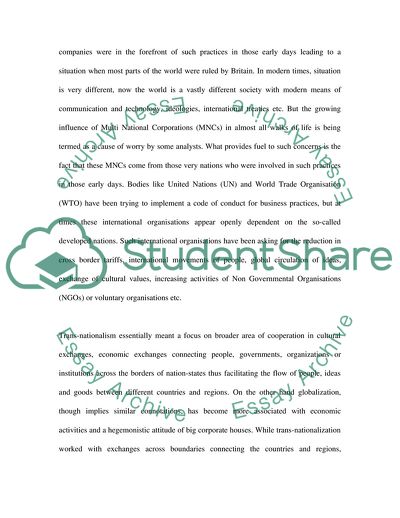Cite this document
(Critique of Globalization and Trans-Nationalism Report Example | Topics and Well Written Essays - 1500 words, n.d.)
Critique of Globalization and Trans-Nationalism Report Example | Topics and Well Written Essays - 1500 words. https://studentshare.org/social-science/1708340-write-a-comprehensive-critique-of-globaliztiontransnationalism
Critique of Globalization and Trans-Nationalism Report Example | Topics and Well Written Essays - 1500 words. https://studentshare.org/social-science/1708340-write-a-comprehensive-critique-of-globaliztiontransnationalism
(Critique of Globalization and Trans-Nationalism Report Example | Topics and Well Written Essays - 1500 Words)
Critique of Globalization and Trans-Nationalism Report Example | Topics and Well Written Essays - 1500 Words. https://studentshare.org/social-science/1708340-write-a-comprehensive-critique-of-globaliztiontransnationalism.
Critique of Globalization and Trans-Nationalism Report Example | Topics and Well Written Essays - 1500 Words. https://studentshare.org/social-science/1708340-write-a-comprehensive-critique-of-globaliztiontransnationalism.
“Critique of Globalization and Trans-Nationalism Report Example | Topics and Well Written Essays - 1500 Words”. https://studentshare.org/social-science/1708340-write-a-comprehensive-critique-of-globaliztiontransnationalism.


